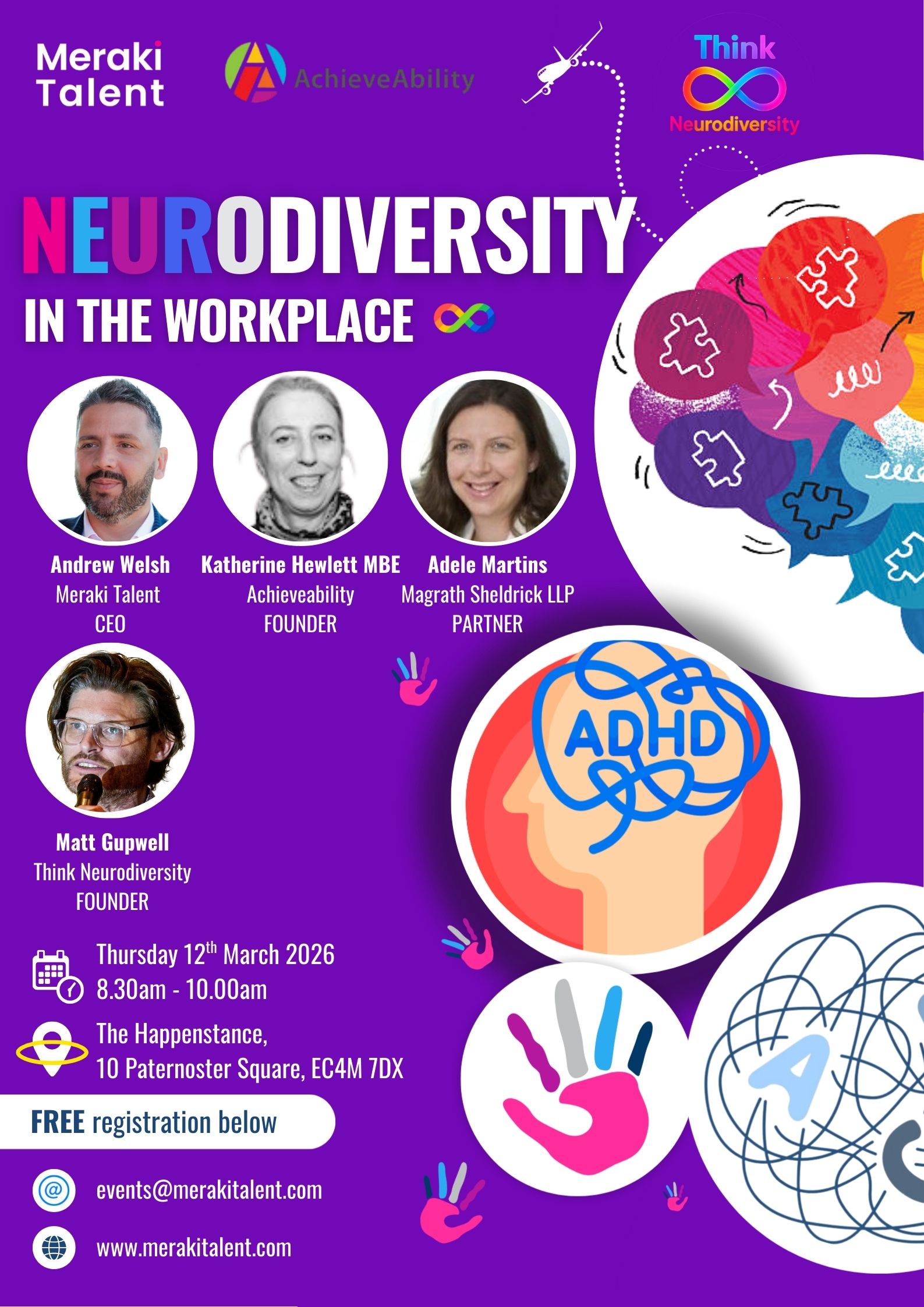
Technology roles are evolving, and data is leading the charge.
| 03/09/2025
By Gordon Willmott, Director, Technology & Change, Meraki Talent
Data is no longer just a by-product of a business but has become one of the most powerful drivers of decision-making, growth, and innovation.
Organisations of every size and sector are rethinking how they collect, store, analyse, and predict data, and this shift is creating an unprecedented demand for professionals with the skills to manage and make sense of it all.
At Meraki Talent, we’re seeing a sharp rise in opportunities across data, cloud technology, artificial intelligence, and predictive analytics. What’s particularly interesting is that these roles are increasingly sector-agnostic. For candidates with the right technical expertise, career paths are now far less restricted by industry.
When we look at the trends shaping these roles, three strands of data stand out: historic, real-time, and predictive. Together, they’re transforming how businesses recruit, structure their teams, and compete in an increasingly data-driven world.
Historic data: viewing a single source of truth through a single pane of glass.
Businesses are sitting on enormous volumes of historic data, from financial statements and call recordings to customer records and compliance documents. The challenge lies in making this data accessible, secure, and compliant.
As regulations in the UK and Europe like GDPR tighten, organisations are investing heavily in data professionals who can consolidate information into a single source of truth. These specialists help unify legacy systems, migrate information to secure cloud environments, and ensure that businesses have instant, controlled access to everything they need.
Crucially they are all visible through a “single pane of glass”. You don’t have to condense multiple platforms to report of access data quickly, which is very helpful when you have compliance responsibilities.
Real-time insights: turning data into decisions
Once data is centralised, organisations are increasingly focused on real-time analysis. Leaders want immediate insights such as live dashboards, visualised reporting, and up-to-the-minute trends, to help them make faster, better-informed decisions.
Leaders want to view live insights with dashboards that refresh by the second, trend analysis that shows shifts as they happen, and data visualisations that make complex patterns easy to understand. Real-time reporting doesn’t just help identify what has happened; it allows decision-makers to act in the moment, responding faster to customer demands, market movements, and operational challenges.
The tools enabling this shift are advancing quickly. From business intelligence platforms like Power BI and Tableau to streaming data pipelines powered by cloud technologies, organisations are investing heavily in systems that put insights directly into the hands of senior leaders.
This is reshaping the technology skill sets companies are hiring for. It’s no longer enough to simply manage data; professionals are expected to translate it into a clear, actionable narrative. The ability to make complex information accessible to decision-makers is becoming just as valuable as the technical expertise itself.
Predictive analytics: shaping the future
The most forward-looking organisations are now embracing predictive analytics and artificial intelligence. Rather than simply reviewing what’s happened, businesses are using data to anticipate what comes next to forecast performance, predict customer behaviour, and inform long-term strategy.
Using technologies like machine learning, AI-driven modelling, and advanced data science, organisations can simulate different scenarios, anticipate customer behaviour, and make smarter, faster choices about everything from supply chains to investment strategies. In sectors like financial services, healthcare, retail, and manufacturing, predictive analytics is becoming a boardroom-level priority.
What does this mean for recruitment?
Across the UK, organisations are building entire ecosystems of data-focused roles. Instead of hiring single-function specialists, they now need professionals who can work across multiple disciplines such as governance, analytics, predictive modelling, and cloud infrastructure.
For candidates, this brings huge opportunity. These roles are far less tied to specific industries, making it easier to move between sectors. Skills, rather than sector knowledge, are becoming a most valuable currency (with a few notable exceptions). And with hybrid and remote working now standard, businesses can access, and candidates can compete for, roles on a much broader scale.
At Meraki Talent, we work closely with our clients and candidates to navigate this transformation. Whether you’re looking to build your data function or explore your next move in technology and change, now is the time to act.
If you’d like to discuss the trends shaping technology and change recruitment, you can connect with me directly on LinkedIn or email gordon.willmott@merakitalent.com
